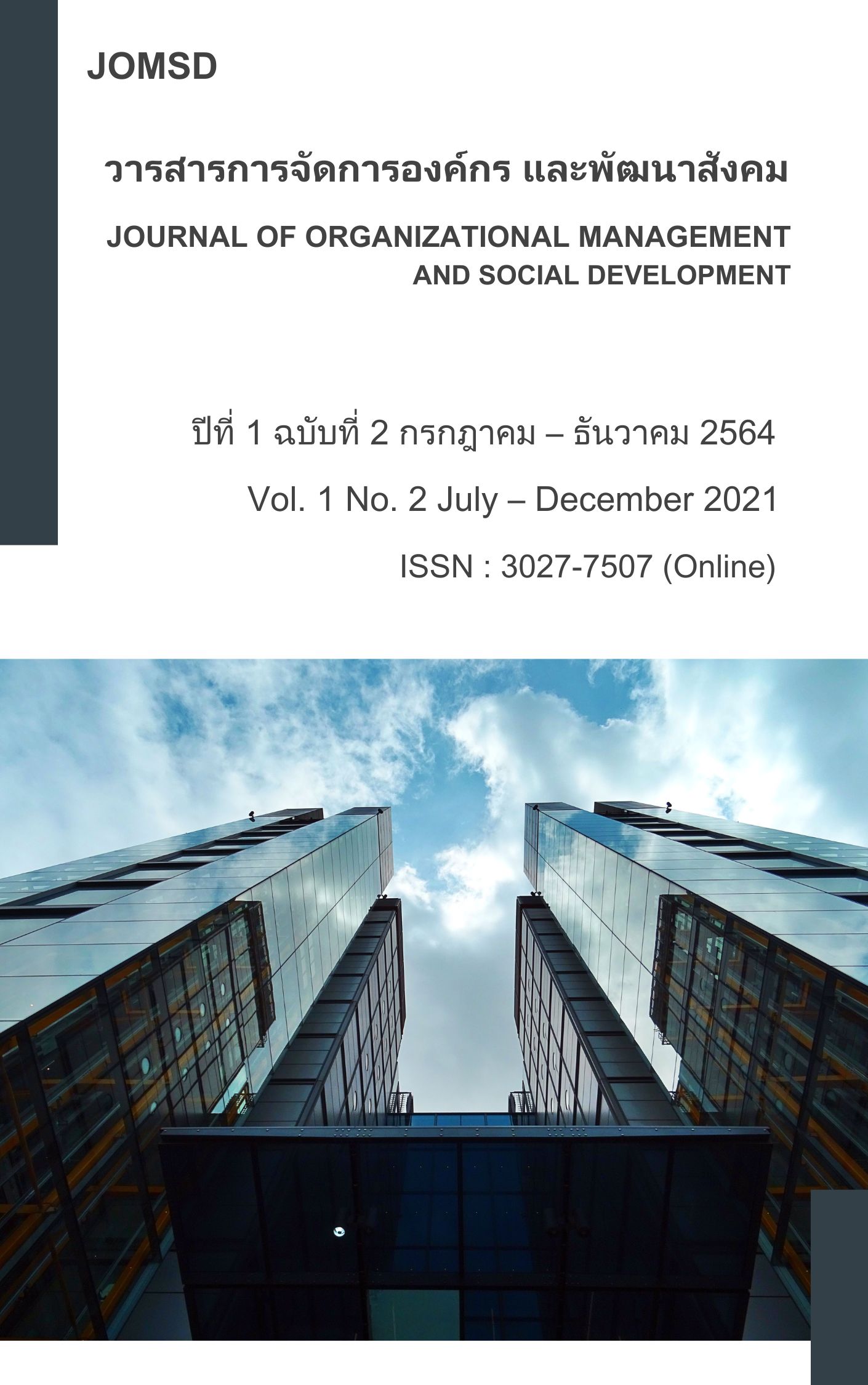Project-Based Teaching on Social Services and Public-Spirited Behavior of Mathayom 1 Students at Educational Institutions in Surin Province
Main Article Content
Abstract
The objectives of this research are 1) to study project-based teaching methods on social service and public mental behavior of students, 2) to develop a project plan on social service and public mental behavior of students, 3) to study proposals. Suggesting project-based teaching on social services and public-spirited behavior of Mathayom 1 students at educational institutions in Surin Province. This study is qualitative research. The group of key informants in this research included 28 teachers and educational personnel. Data were analyzed descriptively. The research results found that: 1) Project-based teaching on social services and public-spirited behavior in addition to helping students gain the knowledge and skills necessary to grow as individuals within society. It can also create an interesting and effective learning space, by giving students the opportunity to practice and create creative and meaningful learning experiences. 2) Creating this project plan will help educational institutions organize learning that emphasizes the importance of social service and public spirit behavior in developing personality within the community and promoting social values in high school students. No. 1 in Surin Province It also strengthens necessary skills. 3) Project-based teaching approach, social service and public-minded behavior are important foundations for developing personality within the community and creating a good society. We believe that project-based teaching in this matter will be a good choice in creating valuable and involved students join in society.
Article Details
References
กิ่งกาญจน์ กลิ่นจันทร์. (2556). การพัฒนากิจกรรมการเรียนรู้ที่เน้นการบริการสังคม เรื่อง ปรากฏการณ์ทางธรณีวิทยาและ ธรณีประวัติ สำหรับชั้นมัธยมศึกษาปีที่ 4. Veridian E-Journal, 6(3), 80-91.
ทวนทอง เชาวกีรติพงศ์. (2558). รูปแบบการพัฒนาจิตสาธารณะของเยาวชนในสถานศึกษาในจังหวัดกำแพงเพชรและตาก. วารสารมนุษยศาสตร์และสังคมศาสตร์(สทมส.), 21(3), 54-68.
นารินทร์พร บุญลาภ. (2563). จิตสาธารณะคืออะไร. สืบค้นจาก https://phichit1.go.th.
ภาสุดา ภาคาผล และวลัย อิศรางกูร ณ อยุธยา. (2558). ผลของการจัดการเรียนรู้แบบโครงงานในวิชาสังคมศึกษาโดยใช้กิจกรรมการบริการสังคมที่มีต่อมโนทัศน์และพฤติกรรมจิตสาธารณะของนักเรียนมัธยมศึกษาปีที่ 1. วารสารครุศาสตร์, 43(1), 80-98.
มณีรัตน์ ผลประเสริฐ. (2561). การพัฒนาการเรียนการสอนแบบโครงงานที่เน้นผู้เรียนเป็นศูนย์กลาง สำหรับวิชากระบวนการพัฒนาซอฟต์แวร์โดยใช้รูปแบบการพัฒนาซอฟต์แวร์ด้วยตัวแบบอาไจล์. วารสารวิชาการการจัดการเทคโนโลยีสารสนเทศและนวัตกรรม, 5(1), 7-20.
วรารัตน์ นาพิรุณ, โสภณ เพ็ชรพวง และนัฎจรี เจริญสุข. (2563). การพัฒนาคุณธรรมจริยธรรมนักเรียนโรงเรียนสุราษฎร์ธานีโดยใช้กิจกรรมโครงงาน. สืบค้นจาก http://ir.sru.ac.th/bitstream/123456789/760/1/%E0%B8%9A%E0%B8%97%E0%B8%84%E0%B8%A7%E0%B8%B2%E0%B8%A1%E0%B8%A7%E0%B8%B4%E0%B8%88%E0%B8%B1%E0%B8%A2%20%281%29.pdf.
วัฒนา รัตนพรหม. (2561).การจัดการเรียนรู้แบบโครงงานฐานวิจัย. วารสารราชภัฏสุราษฎร์ธานี, 5(2), 37-60.
สมเกียรติ แก้วเกาะสะบ้า. (2563). การออกแบบแบบปรับเหมาะกับการวิจัยการวัดและประเมินผล. วารสารการวัดและประเมินผลสถิติและการการวิจัยทางสังคมศาสตร์, 1(2), 1-10.
อารีวรรณ คูหเพ็ญแสง, สุรีพร อนุศาสนนันท์ และสมพงษ์ ปั้นหุ่น. (2559). ปัจจัยที่ส่งผลต่อการมีจิตสาธารณะของนักเรียนมัธยมศึกษาตอนต้น : กรณีศึกษาโรงเรียนสาธิตในภาคตะวันออก. วารสารการศึกษาและการพัฒนาสังคม, 12(1), 163-174.
Krejcie, R. V., & Morgan, D. W. (1970). Determining sample size for research activities. Educational and psychological measurement, 30(3), 607-610.

